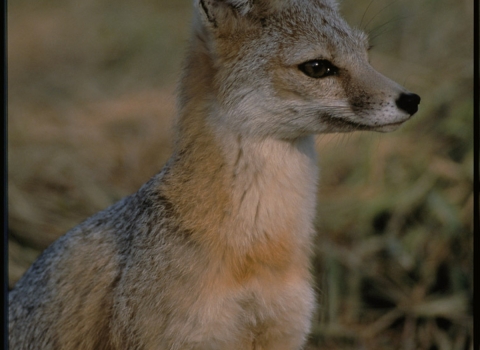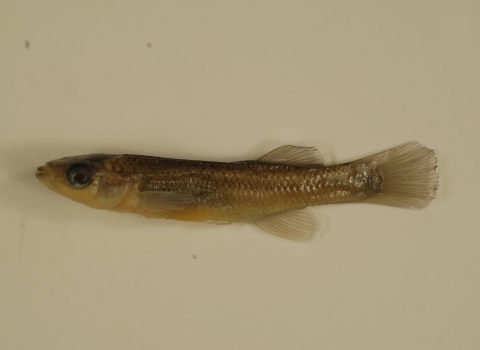DENVER – The U.S. Fish and Wildlife Service (Service) is announcing the availability of the Parachute beardtongue (Penstemon debilis) draft Recovery Plan and is inviting the public to comment on this plan no later than February 12, 2022. This draft Recovery Plan includes specific recovery objectives and criteria that, when achieved, will enable us to remove this species from the list of endangered and threatened plants.
Parachute beardtongue is a rare plant found only on oil shale outcrops of the Roan Plateau escarpment in Garfield County, Colorado, above the Colorado River. These plants have a unique ability to survive on steep, unstable shale slopes. All known Parachute beardtongue plants are distributed across a very small geographic range approximately 2 miles wide and 17 miles long, and a catastrophic event could impact multiple subpopulations. Parachute beardtongue was listed as Threatened under the Endangered Species Act (ESA) in 2011 due to its highly restricted geographic range and threats from oil and gas development, oil shale extraction and mine reclamation, road maintenance, vehicle access, invasive species invasive species
An invasive species is any plant or animal that has spread or been introduced into a new area where they are, or could, cause harm to the environment, economy, or human, animal, or plant health. Their unwelcome presence can destroy ecosystems and cost millions of dollars.
Learn more about invasive species , and the effects of global climate change climate change
Climate change includes both global warming driven by human-induced emissions of greenhouse gases and the resulting large-scale shifts in weather patterns. Though there have been previous periods of climatic change, since the mid-20th century humans have had an unprecedented impact on Earth's climate system and caused change on a global scale.
Learn more about climate change .
The draft Recovery Plan was developed with input from other Federal agencies, state agencies, and local partners. Recovery plans are non-regulatory documents that serve as the roadmap to recovering threatened and endangered species. These plans build on the information gathered from a thorough expert review of the species biology and include objective, measurable criteria, and site-specific management actions essential to recovery.
The notice of availability is available for public inspection today in the Federal Register Reading Room and will publish tomorrow, December 14, 2021, in the Federal Register. The Service will accept public comments on the draft plan for 60 days after publication. The draft Recovery Plan is available on the ECOS ECOS
Environmental Conservation Online System (ECOS) serves a variety of reports related to FWS Threatened and Endangered Species.
Learn more about ECOS website. Interested parties can submit comments electronically to the email address: grandjunctionES@fws.gov. Comments will also be accepted via U.S. mail or hand-delivery to: Field Supervisor, Colorado Ecological Services Field Office, U.S. Fish and Wildlife Service, 445 West Gunnison Ave, Suite 240, Grand Junction, Colorado 81501-5711.
The mission of the U.S. Fish and Wildlife Service is working with others to conserve, protect, and enhance fish, wildlife, plants, and their habitats for the continuing benefit of the American people. For more information on our work and the people who make it happen in the West, connect with us through any of these social media channels: Facebook, Twitter, Flickr, YouTube, and Instagram.



